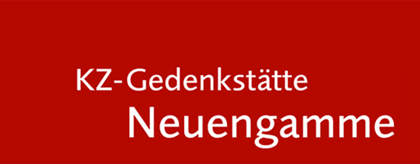
Project Days
The main focus of the educational programmes at the Neuengamme Concentration Camp Memorial is on the history of the site as a concentration camp and as a memorial. While special focus is put on the personal experiences of prisoners, we also explore the relationship between the history of the concentration camp and the economic interests of the city of Hamburg. During Project Days, groups have the possibility of exploring various questions and aspects in greater depth. Interactive methods let young people engage with the site more actively, allowing them to explore topics that interest them.
Advice: ulrike.jensen@gedenkstaetten.hamburg.de, Phone: 040 428 131 519
Bookings: info@museumsdienst-hamburg.de, Phone: 040 428 13 10
Duration: 5 hours
Number of participants: Up to 25 pupils (we recommend dividing larger school classes into two Groups)
Topics
A Project Day includes an overview of the grounds of the former concentration camp (the prisoners' barracks and sites of former work details) and of selected exhibitions and sites of commemoration (including the International Monument). Our education staff can offer suggestions for topics that can be worked on in small groups within the exhibitions or in the Open Archive. The groups can then present their work to the class for further discussion. A Project Day focuses on issues revolving around a main theme. Please talk to the Memorial’s education staff about what topic you would like to explore. Possible themes include:
- Types of prisoners and prisoners’ life stories
- Children and adolescents in the concentration camp
- The persecution of women and survival strategies
- Prisoners' everyday life in the camp
- Self-assertion, culture and resistance
- Life after surviving the camp
- History of remembrance
- The SS at Neuengamme concentration camp and what happened to perpetrators after 1945
Please note: The Centre for Historical Studies at the Memorial also offers Project Days focusing on relevant topics for vocational schools (medicine during the Nazi regime, the economy of slave labour, trade union resistance, etc.). See our programmes for vocational schools and professionals.
Project Day: Research Questions
What does this site and its history mean to me personally? What do I want to find out more about? Participants can delve deeper into the site by exploring the exhibition and the Open Archive. While investigating their questions, pupils are encouraged to apply different methods of research and presentation. They learn how history is always written from today’s perspective, and that questions about the past do not always have clear answers.
Project Day: Working with Objects
When booking, please indicate that you want this Project Day specifically.
What is this object? What is its connection to the history of Neuengamme concentration camp? In this hands-on Project Day, original objects are used to explore questions about history. Each object relates to a certain topic which teams of pupils can research in different exhibitions. After the teams present their findings to the class, the entire group explores the grounds together to find out more about the places connected with the objects and themes.
Project Day: Lending Locations a Voice
This interactive method focuses on engaging personally and independently with one of ten selected sites on the grounds of the former Neuengamme Concentration Camp. Equipped with information material, photos, drawings, and quotations, the pupils are divided up into small groups to prepare the presentation of their chosen site (and the topics associated with it) ahead of the tour conducted with their class, which features the results of the work undertaken by the group as a whole.
Biographies Project Days
The Biographies Project Days involve not only getting to know the former concentration camp site and selected exhibitions, but also working in small groups on a particular prisoner’s biography. What was the person’s life like before they got arrested? Where did they come from and why were they arrested? What do we know about their time under arrest at the camp? Did the person survive and, if so, what was their life like after they had survived? The focus here is on biographies and excerpts from interviews with concentration camp survivors featured in the main exhibition. Biographies of male and female guards featured in the exhibition on the SS presence at the camp can also be included if so required.
Theme-based Project Days
A Theme-based Project Day includes getting to know the grounds of the former concentration camp and selected exhibitions as well as working on a topic. The work results can then be presented and discussed.
Please discuss your preferred choice with the Memorial Educator assigned to you. All the topics can be extended over several days, if preferred.
- The ‘White Buses’ rescue operation
- Biographies
- A comparison of the concentration camp system
- The SS presence at the camp
- Remembrance & commemoration
- Women at the concentration camp
- Football during the Nazi era and in concentration camps
- A day in the life of a prisoner
- Prisoner groups
- Children & adolescents
- War economy & forced labour
- Life after surviving the camp
- Neighbourhood
- Self-assertion/culture/resistance
- ‘Extermination through work’
- Prisoners’ drawings
- Various types of collaboration


